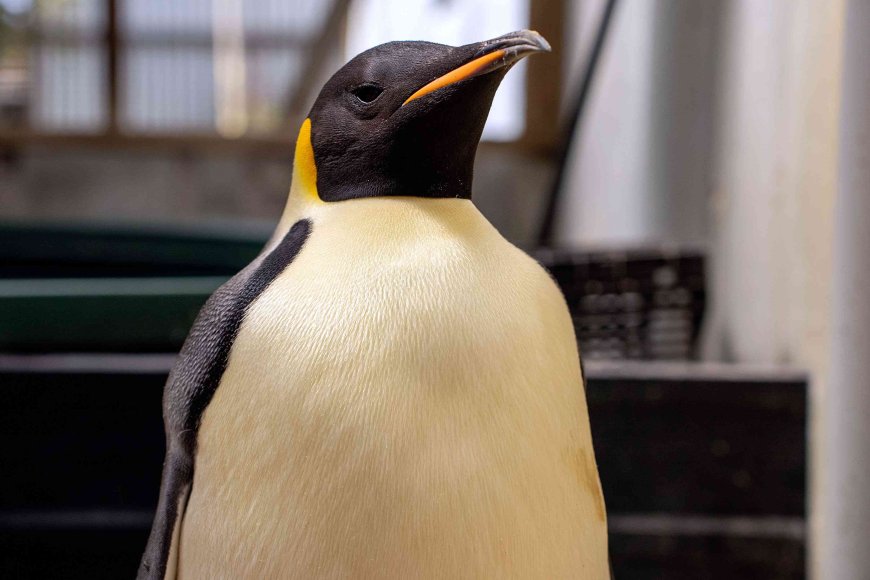A Malnourished Emperor Penguin Is in Recovery After Swimming Over 2,000 Miles to Australia
The penguin — known as Gus — was discovered by surfers on a tourist beach in southwest Australia on Nov. 1

The penguin — known as Gus — was discovered by surfers on a tourist beach in southwest Australia on Nov. 1 Miles Brotherson/DBCA/AP Male emperor penguin, dubbed Gus, after being discovered on a beach in Australia.:max_bytes(150000):strip_icc():format(jpeg)/Emperor-Penguin-111124-NA-tout-313e13b0dd2b48f2863590a997b4c546.jpg)
An emperor penguin is in recovery after swimming from Antarctica to Australia — a journey of over 2,000 miles.
The bird was discovered on a tourist beach on the country's southwest coast on Nov. 1, according to a government statement obtained by the Associated Press.
The lone penguin was first spotted by surfer Aaron Fowler, per the Australian newspaper Albany Advertiser.
"We had a look [at] what was going on and there was this big bird in the water, and we thought it was another sea bird," Fowler told the outlet, adding, "but then it kept coming closer to the shore — and it was way too big — and it just stood up and waddled right over to us."
The penguin reportedly weighed only 51 lbs — with 55-100 lbs considered normal for the species. DBCA/AP Male emperor penguin found in Denmark, Australia.
The bird — which has been nicknamed Gus — is currently under the care of local wildlife experts and is being regularly sprayed with chilled water mist to help him cope with his new, significantly warmer climate.
Never miss a story — sign up for PEOPLE's free daily newsletter to stay up-to-date on the best of what PEOPLE has to offer, from celebrity news to compelling human interest stories.
According to Western Australia state’s Department of Biodiversity, Conservation and Attractions, the goal is to rehabilitate the penguin. Officials are currently unsure whether he will return to Antarctica following his recovery, though "options are still being worked through," per the AP report.
PEOPLE reached out to Western Australia's Department of Biodiversity, Conservation and Attractions for further details but did not immediately hear back.
Related: Pesto Is Growing Up! The Viral Baby Penguin Is Shedding the Fluffy Feathers That Made Him Famous Miles Brotherson/DBCA/AP Male emperor penguin stands on a scale after being discovered in Denmark, Australia.
According to the Center for Biological Diversity, a nonprofit that works to secure the future of endangered species, emperor penguins are especially impacted by the effects of global warming due to the melting of ice shelves.
"Scientists project that 80% of the world’s emperor penguins may disappear by the end of the century without drastic cuts in carbon pollution," the org states. "These penguins are also threatened by ocean acidification and industrial fisheries, which further reduce prey availability."












































